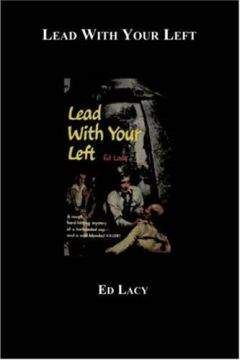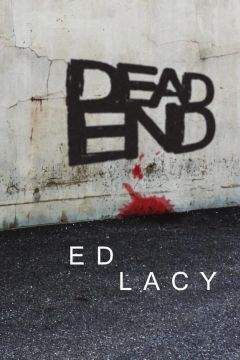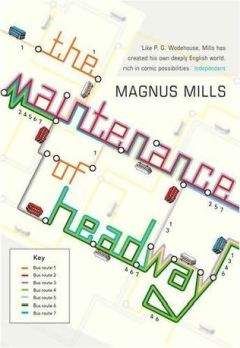Ed Lacy - Lead With Your Left
На сайте mybooks.club вы можете бесплатно читать книги онлайн без регистрации, включая Ed Lacy - Lead With Your Left. Жанр: Прочее издательство неизвестно,. Доступна полная версия книги с кратким содержанием для предварительного ознакомления, аннотацией (предисловием), рецензиями от других читателей и их экспертным мнением.
Кроме того, на сайте mybooks.club вы найдете множество новинок, которые стоит прочитать.

Ed Lacy - Lead With Your Left краткое содержание
Lead With Your Left читать онлайн бесплатно
Her voice wasn't quite shrill as she said, “Oh, damnit, Dave, I told you they were having exactly eight and now.”
I went over and helped take off the other stocking. “Honey, I didn't plan it this way. One of those things.” I pulled her to her feet, kissed her. “Babes, you look like money from home in those panties and bra—really stacked.”
“Am I?” She kissed me quickly. “Now Dave, supper is on and I'm hungry and sweaty and—”
“I've been hungry for the last week,” I said, running my hands over her, hard.
Mary suddenly giggled in my ear, nibbled at it. Then she started unbuttoning my shirt. “Be careful of the couch spread. I like it best when it's a surprise. Oh, Davie, I would have been terribly disappointed if you had let me take my shower first.”
I undressed with the speed of a fireman. Surprise? I was as astonished as a guy suddenly finding he has it made.
Wednesday Evening
I got a break in Night Court. We were called early and since my boy had confessed, the arraignment went through fast. This Don Tills lived down in the Village in an old brownstone that had been made over into small apartments. It was still muggy and I got screwed up as always with the Village streets, and all the walking and rushing left me sweating a little.
But I was there shortly after nine and Mary was pleased. The Tills had a couple of high-ceilinged rooms with furniture like ours, only more of it and probably more expensive. Mary was wrong about them having exactly eight people, they had nine—there was a guy with a big belly and a sort of tense face, including a thick black mustache, who was sleeping off a bottle on the couch. I never did get his name or what he was doing there and nobody paid him any mind, except to break into laughter when he'd mutter, “Who's on the gate?” every ten or fifteen minutes.
They had two bridge tables set up, with chairs to match, and all the men looked about the same, between twenty-five and thirty, short haircuts, casual sport clothes, sharp alert faces, and all very sure of themselves. In fact they all sounded the same, like actors talking: good voices. The girls didn't look so much alike but they had the same intense faces and all dressed sharply. There was a portable bar and everybody had a glass and they were telling jokes when I came in— mostly some old dirty jokes with new names added. When I was introduced Mary said quickly, “I'm so glad your business appointment didn't keep you any later. We've been waiting for you before we started playing.”
“What kind of a belt would you like, Dave, rye, scotch, gin, vodka, or tequila?” Don asked me.
I was going to say I didn't drink but didn't want to sound like a square so I said, “Too warm for hard stuff. Got a beer handy?”
Grace, Don's wife, who really filled her black and gold slacks, gave me a can of beer and a kind of bottomless cup that fitted over the top of the can. She said, “Now you won't need a glass.”
I smiled. “I wouldn't have needed a glass anyway. Thank you.”
“This way the flavor of the beer isn't lost by pouring it out of the can,” Don told me. Seemed like they'd given a lot of thought to something as simple as beer drinking. Then he told everybody, “Fellow I went to Yale with and who works for a Chicago agency, wrote me one of their clients is working on a paper beer container. Has some kind of keg lining to improve the flavor, I believe.”
Everybody except me started talking about this: I was waiting to play bridge. Half the time I didn't even know what they were talking about. They had pet words they all liked to mouth: “the cost-level,” or something was “sales-wise,” or had a “built-in selling point.” Even Mary got into the act, saying, “There's something substantial about a can, gives you a feeling of getting your money's worth that a milk container, for example, doesn't have. Consumer-wise I think it would be a mistake to lose that.”
Still they all looked like nice bright people and I sipped my beer, which only made me sweat more, and glanced at myself in a wall mirror to see if my shirt looked wilted, and listened. About a half-hour later they finally got the cards out but at nine-forty-five somebody insisted the TV be turned on to one of our programs. Most boorish bilge you ever heard. We wrote several very clever programs but the client, a real corn-ball, chose this tripe.
The “program” was so short it wasn't worth all the talk—a one-minute commercial in which an uncomfortable-looking big league pitcher stumbled through a couple of lines about how he loved to use this brand of paint when he was puttering around his house. When it was over they shut off the set and everybody chattered away, arguing about the damn thing. I kept nursing my beer and keeping my trap shut.
Belly-boy on the couch broke things up by mumbling, “Who's on the gate?” between snores and then we started to play cards.
Mary and I were playing against Don and Grace Tills. He turned out to be one of these psychic bidders, bidding on what he thinks his partner should have. He opened with a diamond bid and I was holding five diamonds, ace, queen high. His wife must have had a few, she gave him a boost. He then bid spades and she took him to game in diamonds and Don went down four.
We got good cards and Mary made three no trump and two hands later we took the rubber. Don and his wife kept making tracks to the bar and were getting juiced. Even Mary was sailing a little and she can handle a bottle. Everybody must have been lapping it up waiting for me.
We were on the second rubber when a fellow at the other table stood up and took off his coat, saying, “Does anybody mind? Getting rather warm in here.”
“You ass,” Don said, “you mean you stood on convention here? Hell, anybody feels warm, strip. And that goes for the ladies too.” He took off his snappy dark-grained sport coat and opened his yellow waistcoat.
Grace said something about waiting for a buy on a couple of air-conditioning units and when I was dummy I peeled off my coat. As I sat down there was a sudden silence in the room, except for light snores of the lush on the couch. There wasn't even the small noises of the cards. It was sort of a shocked silence. Mary was staring at me, her mouth angry-hard. In fact everybody was looking at me, including the four people at the other table.
I casually glanced down at my pants, at my shirt and tie-nothing was open or dirty. Mary was really burning, her face flushed. Glancing around I asked brightly, “I make a funny noise or something?”
Don pointed a slender finger at my shoulder holster and gun. “Guess this is the first time any of us have seen a setup like that—off a TV screen. I assume that's a real gun?”
“Sure is. I'm a detective.”
“Wow—a real private eye!” one of the girls at the other table said with what might have been a giggle.
Mary looked as if she wanted to disappear. “Nope, I'm a cop. Detective third grade, attached to the 201st Squad,” I said.
An idiotic grin spread over Don's lean face as he dropped his cards, told Mary, “Why didn't you tell me your husband was a real detective?”
Somebody at the other table said, “This is positively delightful,” as one of the girls left the table and asked me, “May I look at your badge?”
“Sure,” I said, wondering if I was being kidded. I showed her the buzzer. She touched it as if it was a big jewel. “Just a hunk of tin,” I added.
They all crowded around me. I was the center of attraction for everybody except the sleeping drunk and Mary. Grace Tills pointed toward my gun, asked, “Mr.... Dave, why are you wearing that? Expecting some trouble here?”
“A cop is supposed to be armed at all times, off duty and on.”
“Certainly the last thing you look like is a policeman,” a man said, looking me over like a queer. “Have you made many arrests?”
“Whenever I have to. Like asking do you write much copy. It's my job.”
Don said, “This is a novelty, talking to a real cop—on a friendly basis.” He gave out a silly little laugh, as if he was nervous. “Wake up, Harold.”
Grace said, “Let him sleep, he's so coy when he's loaded.” She turned to Mary. “You should have brought Dave over long before this. He's terribly interesting.”
Mary's face was back to normal color but her mouth was still a tight line. Then she said, “Dave is the youngest detective on the force. He made a very important arrest a few months ago—you remember that psychopath who had killed several women with a piece of pipe? Dave arrested him and was made a detective.” Her voice wasn't shrill, she probably felt better now that I was the center of things.
One of the men said, “I followed that case, I get a morbid kick out of reading... That's right, I do recall now, a rookie cop named Wintino. Never connected that—him—with you, Mary. But I should have, odd name.”
The girl who had wanted to see my badge asked, “Tell us the truth, is there really much third-degreeing?”
I dropped my cards and shrugged. “I've seen very little of it. But then I haven't been on the force long. There's over twenty thousand men on the force. I suppose there must be more than a few knuckle-happy cops. And sometimes it can't be helped.”
“Surely you don't condone such methods?”
“Well,” I said slowly, patting my hair—I always get “condone” and “condemn” mixed up in my mind—“it's like this: we have a lot of laws, many of them stupid and far outdated, but they're still on the books. The more laws, the more lawbreakers, the more work for us. And we're always running short on time. Now most crooks are cowards, at least that's what the older cops tell me. These crooks because they are cowards deal in violence and sometimes that same violence, or the threat of it, is the fastest way of making them talk. From my own experience I'd say there's little rough stuff, mostly because it isn't necessary.”
“Now look here, Dave,” Don said, freshening his drink, “we all know there's police brutality—you might as well admit it.”
“There probably are cops who think with their night sticks,” I said, “but as I said, from my own experience, I've seen some impatient cops, but that's all. I wouldn't call it brutality.”
“Who's on the gate?” the clown on the couch asked but now nobody laughed, they were paying attention only to me.
“How about corruption?” another guy asked me.
I smiled. “Come off it.”
“I'm serious. I've read the reports of the Seabury investigation some twenty years ago and that definitely showed—”
“That was long before my time. I can assure you I'm not the captain's bagman, nor have I ever seen such a collector. Sure, there's small cushion some guys go for—a free meal, a few bucks at Christmas, maybe a new tie or hat. And for all I know there may be big payoffs from the rackets, but I've never seen it. A retired cop was shot yesterday while working as a part-time messenger. Does that sound like a guy with a hand in the cracker barrel?”
“Now we all read about traffic ticket scandals, the business with Harry Gross,” the guy said.
I tried not to get sore. “You want me to give you newspaper stories or what I know? Let me put it this way: in the short time I've been a working police officer, I haven't even been offered a free sandwich. And if I had I wouldn't have taken it. Hell, there must be some people in the advertising office who are always looking for free theater tickets or a bottle. That doesn't make the whole agency corrupt. Most of the cops I know have a job to do, protecting society, and they try to do it best they can.”
Mary was giving me the eye—maybe to shut up. “Are you really protecting society?” Don asked. “Nobody can solve social problems, deep and complex, merely by passing a law. Crime is only the reflection of the sick state of our society and at best a policeman is only a salve when an operation is needed.”
I said, “A salve is better than nothing. Take this afternoon when I collared a man trying to—”
“Dave, nobody is interested in such details,” Mary said, her voice a shade on the shrill side.
“Oh, but indeed we are,” Grace Tills said with a big smile for me. “This is all so wonderful. What happened this afternoon?”
I winked at her. “Is this so wonderful? This afternoon I picked up a jerk in the process of busting into a parked car, trying to lift a coat. The fellow hasn't a record, he's out of work. The car was a Jaguar and the owner could probably afford to lose the coat and the damage to his window. But I can't worry about the social angles. A cop can't be judge and jury, that's when he goes in for rough stuff. It's only a job to me. Maybe this punk was hungry enough to justify robbery but that isn't for me to decide.”
“Come now, Dave,” the girl who liked my badge said, studying me with what she must have thought were big eyes, “you can't separate yourself from society by saying 'It's my job,' or 'my duty.'”
“It's more than a job in the sense that I'm doing good by preventing other crimes. I mean if there weren't any cops, well, you know. But it's also strictly for pork chops with me, and with you. Suppose you're pushing some towel ads. You never ask whether the cotton was picked by underpaid migrant workers, made in a sweatshop mill, when you sit in your comfortable office and lay out a slick ad,” I said, knowing I wasn't saying what I wanted to or making much sense.
“A philosophical cop,” one of the men said. “Wonder of wonders.”
“No, it isn't a wonder or philosophical or a damn thing but a job with long hours and—”
“Little pay,” Mary cut in bitterly.
“And big risks,” I said. “If your boss suddenly told you to get out and clean the office windows you'd refuse because you'd be risking your life. Yet for less salary than you're making I'm expected to face guns, knives and fists every day. But even if the pay was good it wouldn't make it a good job because secretly most people hate cops.”
“Exactly,” the girl with the big eyes said. “Because you do society's dirty work. This man you arrested this afternoon, his resentment isn't against the economic insecurity that made him seek robbery but against you. We need economic equality not night sticks or—”
“Easy, Janice,” Grace Tills cut in, “or you'll fall off your soapbox.”
“No, no,” Janice said eagerly, “I'm only trying to show him the reality of the situation is that police aren't the answer but—”
“The reality of the situation is,” I cut in, “that there's a homicide every forty minutes in the U.S.A., a rape every half-hour, an assault every six minutes, and some form of larceny every twenty-six seconds, and when you're the victim you'll be yelling for the police!”
Похожие книги на "Lead With Your Left", Ed Lacy
Ed Lacy читать все книги автора по порядку
Ed Lacy - все книги автора в одном месте читать по порядку полные версии на сайте онлайн библиотеки mybooks.club.




